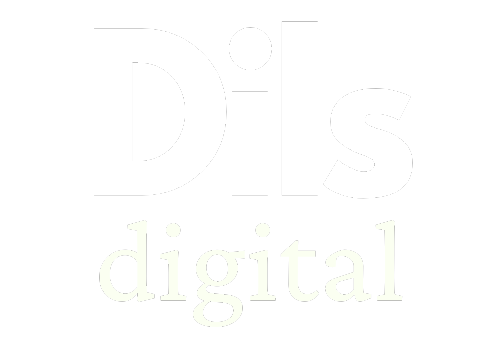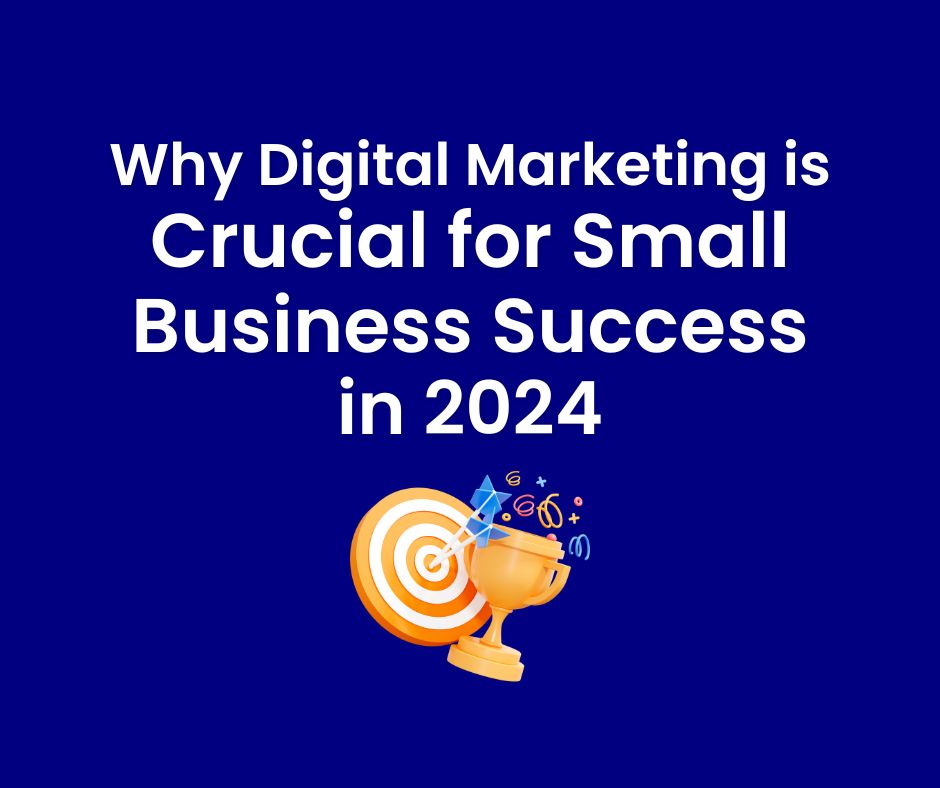Why Digital Marketing is Crucial for Small Business Success in 2024
Table of Contents
In today’s fast-paced, digital-first world, small businesses can no longer rely solely on traditional marketing methods. Digital marketing has become a powerful and cost-effective tool for businesses of all sizes, but for small businesses, in particular, it’s a game-changer. In 2024, the stakes are even higher as technology continues to evolve and customer expectations shift. Here’s why digital marketing is essential for small business success:
Cost-Effective Marketing Solution
Unlike traditional advertising channels such as TV, radio, or print media, digital marketing offers more affordable options that deliver better ROI. For small businesses working with limited budgets, platforms like Google Ads, social media advertising, and email campaigns allow you to promote your products or services without overspending. You can reach a vast audience, targeting customers based on demographics, interests, and online behaviors—all while controlling how much you spend.
Wider Audience Reach
Digital marketing allows small businesses to extend their reach beyond geographical boundaries. With over 5 billion people using the internet, your potential audience is virtually limitless. Techniques such as search engine optimization (SEO), social media marketing, and email marketing enable small businesses to tap into broader markets, attracting customers locally and globally.
Targeted Marketing
One of the most significant advantages of digital marketing is its ability to target specific customer groups. Tools like Facebook Ads Manager and Google Ads allow businesses to pinpoint their ideal audience based on factors such as location, age, interests, and more. This level of precision ensures that your marketing efforts are spent wisely, focusing only on those who are most likely to convert.
Real-Time Analytics and Insights
Digital marketing platforms provide access to data and insights in real time, something traditional marketing lacks. Businesses can easily track performance metrics such as clicks, conversions, and engagement rates. Tools like Google Analytics and social media insights help small businesses understand which strategies work best, allowing them to tweak campaigns quickly for better results. This data-driven approach ensures continuous improvement and optimized spending.
Builds Customer Relationships
Digital marketing fosters direct communication with customers through social media, email newsletters, and personalized content. This interaction not only increases customer engagement but also builds trust and loyalty over time. Platforms like Facebook, Instagram, and Twitter allow small businesses to stay connected with their audience, addressing concerns, sharing updates, and humanizing their brand.

Levels the Playing Field
One of the most profound impacts of digital marketing is that it levels the playing field between small and large businesses. With the right strategy, a small business can compete with larger enterprises by appearing in search results, reaching customers through social media, and engaging in targeted email campaigns. Small businesses can also leverage organic search rankings through SEO, enabling them to compete for visibility without spending massive amounts on advertising.
Enhances Brand Awareness
A strong online presence is essential for brand recognition, and digital marketing helps small businesses establish and grow that presence. Consistent content marketing, social media activity, and SEO efforts contribute to a brand’s visibility online, which helps build trust with potential customers. As more people engage with your content, your brand becomes familiar and trustworthy, which is key to driving business success.
Improves Conversion Rates
Digital marketing methods, such as email campaigns, social media ads, and landing pages, allow for more effective lead nurturing and follow-up. When you optimize your campaigns for conversions, you are more likely to turn leads into customers. A well-designed website, combined with engaging content and targeted ads, can significantly improve your conversion rates over time.
Flexibility and Scalability
One of the biggest benefits of digital marketing is its flexibility. Small businesses can adjust their marketing efforts based on the changing needs of their customers or shifts in the market. Whether it’s updating your ad targeting, launching new offers, or shifting your content strategy, digital marketing gives you the freedom to adapt without heavy financial investment. As your business grows, your digital marketing strategies can scale alongside it.
Keeps You Competitive
In 2024, businesses that aren’t embracing digital marketing risk falling behind. With more consumers than ever researching and purchasing products online, it’s crucial to maintain an active and engaging online presence. By investing in digital marketing, small businesses can stay competitive and relevant in their industries, ensuring they’re not left behind in the race for customer attention.
Conclusion
In 2024, digital marketing is no longer an option—it’s a necessity for small business success. Its affordability, reach, and ability to drive targeted results make it the most effective way for small businesses to compete and grow. Whether you’re just starting out or looking to expand your business, digital marketing provides the tools and strategies needed to succeed in today’s digital world.
Recent Posts
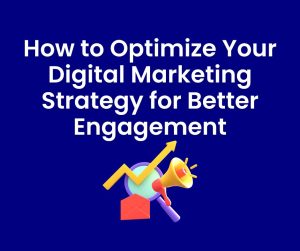
How to Optimize Digital Marketing Strategy for Better Engagement
In an increasingly digital world, optimizing your digital marketing strategy is essential for boosting engagement and building lasting customer relationships. Discover key strategies to enhance your online presence, from understanding your audience to leveraging social media and incorporating video content. Learn how to create meaningful interactions that convert casual visitors into loyal customers, ensuring your business thrives in 2024.
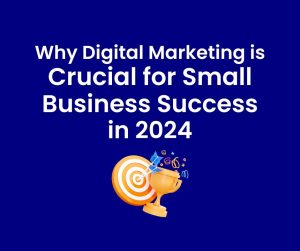
Why Digital Marketing is Crucial for Small Business Success in 2024
In 2024, digital marketing is the key to small business success. Learn how cost-effective strategies like SEO, social media, and targeted advertising can help your business grow, build customer relationships, and stay competitive.
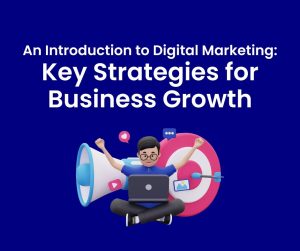
An Introduction to Digital Marketing: Key Digital Marketing Strategies for Business Growth
In today’s digital world, having a strong online presence is essential for business growth. This blog breaks down the key components of a successful digital marketing strategy, including content marketing, SEO, social media, PPC advertising, and more. Learn how these strategies can help your business reach new heights and thrive in the competitive market!
